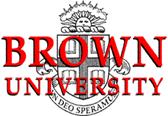|
Recent developments in science and technology have focused attention on mechanical behavior of materials on the scale of nanometers. Science has provided the means to manipulate materials on an atom-by-atom basis, identified mechanisms for biological processes which are activated by stress or deformation of tissue, and established procedures for material characterization on small size scales, for example. These developments are having an almost immediate impact on technology, and serious research efforts have begun in order to exploit them in various applications. Among these technologies are quantum electronic devices, bio-surgical instruments, micro electrical sensors, functionally graded materials, and many others with great promise for commercialization. To support these efforts, it is important for the mechanics of materials research community to become better informed on these developments, to coordinate efforts aimed at addressing the very challenging research problems which require mechanics input for their solution, and to educate young people who can sustain and advance these important areas in the years ahead. A particularly challenging aspect of fostering research in the nano- and micro-mechanics of materials is its highly interdisciplinary character. Important studies have been initiated in many different branches of science and engineering. A subset of these which is both scientifically rich and technologically significant can be identified which has mechanics of solids as a distinct and unifying theme. It is important for leading researchers with interests in this subset of areas to be aware of the breadth of activity included and to inform others who might benefit from their own recent progress. For this reason, a workshop structured around four distinct but interconnected topics will be held under the auspices of the Division of Civil and Mechanical Sciences at NSF. One of the four topics is research on the analysis of mechanical behavior of materials with various complexities of micro-mechanisms, at various length and time scales which embrace the nanometer length-scale. Major activities in this area include (a) computational modeling with large scale simulations, (b) physical modeling of electronic, atomic, molecular-dynamic aspects of (individual) micro-mechanisms responsible for the deformation and motion of materials on the nanometer scale, and (c) physical modeling of interactive micro-mechanisms and their collective behavior. The first two research activities, (a) and (b), are mainly driven and supported by other branches of science and engineering, e.g. physics, chemistry, material science and computer science. Furthermore, the high-end computing activities are separately funded and the research community itself is too large to be included in this workshop. Therefore, only research activities focused on physical principles that enable the analysis of mechanical behavior of materials, associated with advanced civil and mechanical systems, are addressed in this workshop. The third listed research activity, (c), is considered to be directly related to civil and mechanical systems. In this research area efforts are made to connect various hierarchies of collective discrete mechanisms to continuum constitutive relations. These activities include Quasi-continuum formulation for near-equilibrium kinetic continuum, Molecular dynamics for non-equilibrium thermo-mechanical continuum, Field-coupling of material defects and their statistical continuum behavior, Diffusion-deformation coupling and micro-structural evolution including phase transformations, Dislocation-cluster representation and gradient plasticity, and Cohesive-zone representation for various damage processes. Another area of importance is research on expanding the manufacturing possibilities for nano- and micro-structures of materials. In this area much of the effort is made in searching for the most effective way of manufacturing small-scale material structures for various engineering applications. The research is focused on discovering efficient self-organizing mechanisms and self-replicating systems based on the physical principles of the evolution of nano- and micro- structures and mechanisms. The most basic self-organizing mechanism is the atomic binding of materials that makes various molecules and crystal structures. This mechanism is already widely used in various engineering and science applications. Examples include crystal growth, the making of various polymers, and the recent invention of C60 Bucky balls and nano-tubes. At this stage, the basic atomic-binding-level self-organization and replicating mechanisms, which are mainly governed by quantum-mechanics principles, are the research areas of chemistry, material science, and biology. In this workshop the subject of interest is focused on the macroscopic controlling factors for the self-organizing and replicating mechanisms, such as stress, strain, surface energy and temperature, etc., in addition to the underlying atomic-binding-level mechanisms. The macroscopic controlling factors also influence the nano-device functions, and extend the functionality of the device. The research in this area is valuable for advanced rapid prototyping and mass-production of various functional material structures. The research area relevant for civil and mechanical systems include Thin-film growth for various engineering applications, Surface mechanics of solids for controlling surface patterns, Micro-structural evolution of materials caused by various stress-assisted diffusion kinetics including electro-migration, and Stress and strain effects on the functions of quantum devices and on their manufacturing processes. Another aspect of the nano- and micro-mechanics research is the advancement of Materials Testing capability. The research in materials testing at nanometer scale is rapidly advancing thanks to the recent development of various scanning probe instruments (STM, AFM, FFM, MFM, Nano-indentors, etc.) as well as other miscellaneous observation and testing instruments such as high resolution electron microscopy, laser, x-ray, infra-red imaging and spectroscopy systems. Again, many different branches of science and engineering have contributed to these advancements. In this workshop the subject of interest, for civil and mechanical systems, will be focused on probing and testing stress and deformation of solids in small-scale, associated with adhesion, diffusion, friction, material-defect nucleation and material-defect mobility etc. The research topics include Nano-indentation for materials testing at small-length scale, Nano-tribology AFM-testing for adhesion and friction on the nanometer scale, Field-based material property testing such as field projection methods, Measurement of stress and strain at small-length scale for various nano- and micro-structures, and Mechanical testing of biological cells and molecules, including Force and deformation measurement in bio-molecules with 10 pico-Newton resolution. Based on above-mentioned considerations, four sessions of the workshop will be held as described in the Program page.
|


|
Introduction |

